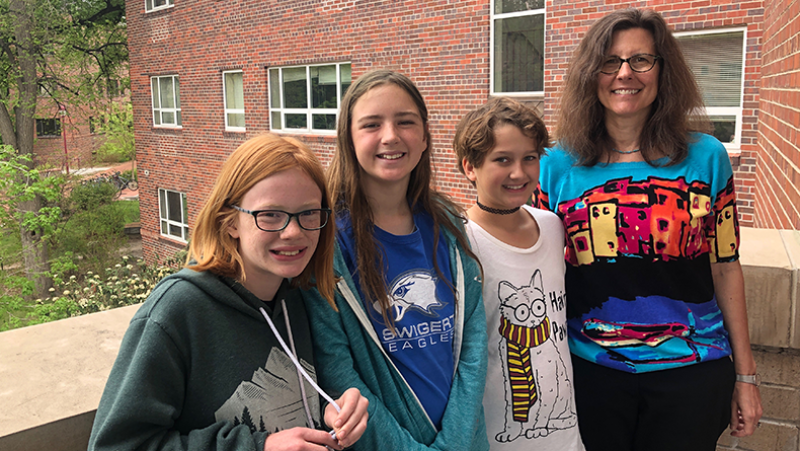Mental Health Education for Youth
Professor Freedenthal shares mental health knowledge with Denver elementary school students

Freedenthal frequently shares her work with the public as a guest speaker, writer, etc., but this time she shared information about mental health and suicide prevention with an unlikely audience: 5th graders from Swigert International School in Denver. They were tasked with an exhibition project, which required each student to pick a topic of interest to research; the topics were then organized into overarching themes and grouped together based on commonality. Students Kate Thornham, Kate Hartman and Lauren Brauer were assigned to the mental health group based on their individual topics — suicide, PTSD and addiction. As they started conducting research, they found GSSW’s very own mental health expert, Associate Professor Stacey Freedenthal, who was more than willing to help answer their mental health questions.
The students were welcomed at Craig Hall and came prepared with a series of interview questions about social work as a profession and the causes of mental health challenges. “How do you figure out if someone is suicidal? If they are, what do you do?” the students asked. Freedenthal explained the importance of knowing the warning signs and risk factors of suicide, and she reinforced the importance of talking openly with the person if suicidal thoughts are suspected. If a person is suicidal, there are many ways to provide support, including creating a safety plan and providing psychotherapy. Freedenthal’s website, Speaking of Suicide, provides a plethora of resources for suicidal individuals, their loved ones and professionals.
The 5th graders also sat in on Freedenthal’s master’s-level class, Suicide Assessment and Intervention. “We learned about her class and what she teaches, and that really opened our eyes to the future of mental health care and what we can do to help,” Thornham said.
It’s never too early to understand the psychological and social determinants of mental health issues, and these bright, young minds may well be the social work advocates of tomorrow. Earlier this year, the group successfully encouraged the student body at their school to wear green for Mental Health Awareness Month. They said they wanted to help their peers learn about mental health because early education can help jump-start interventions if mental health challenges arise within their social circles.




